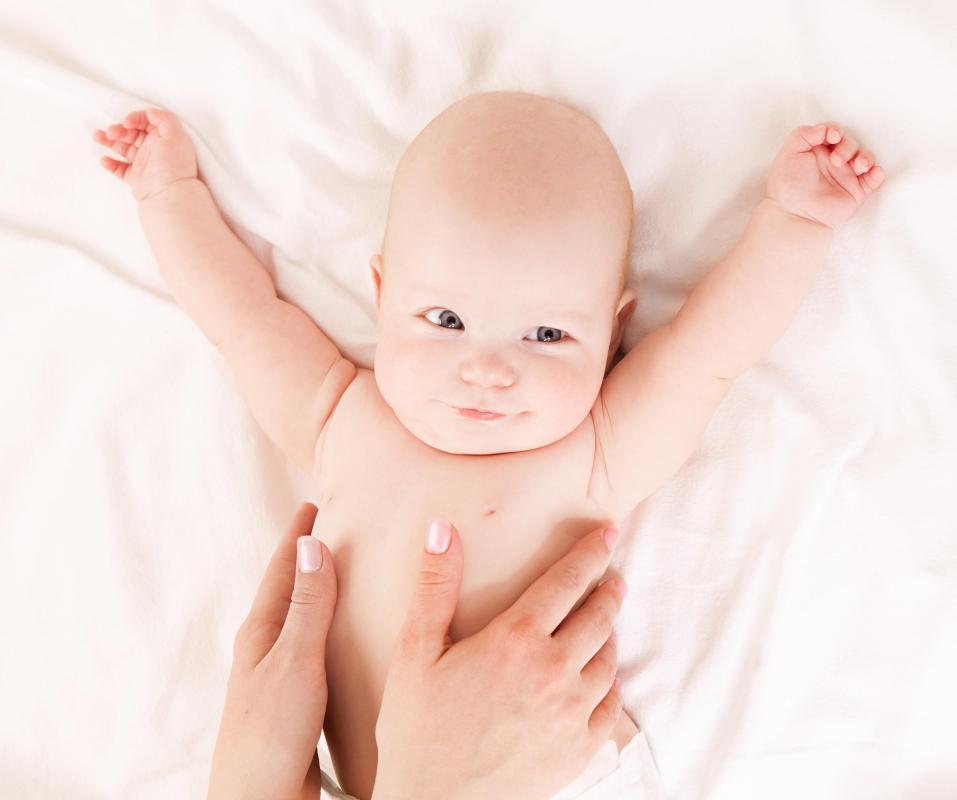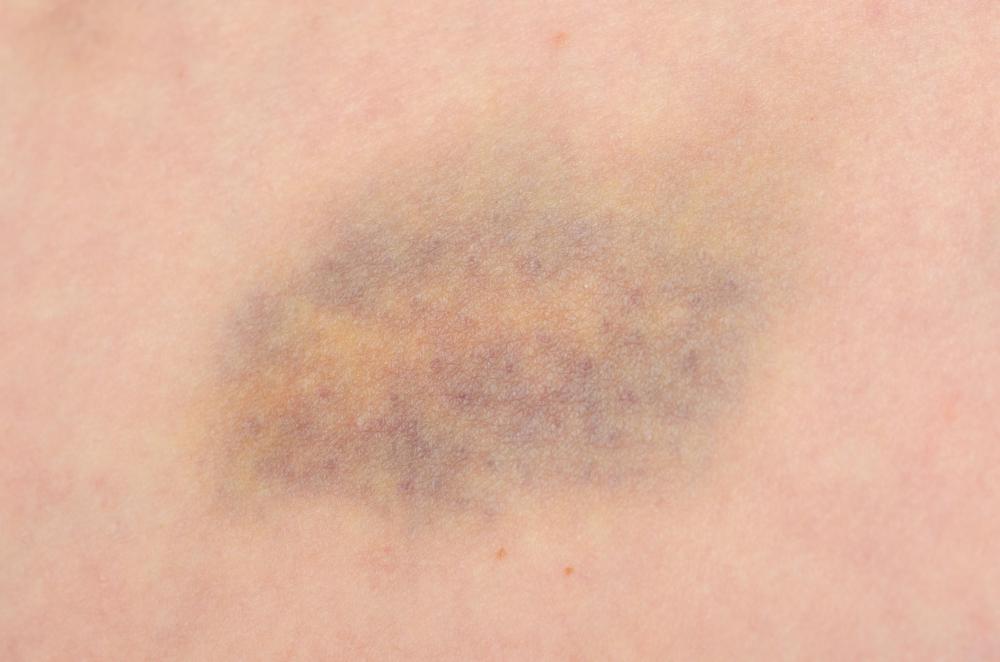At WiseGEEK, we're committed to delivering accurate, trustworthy information. Our expert-authored content is rigorously fact-checked and sourced from credible authorities. Discover how we uphold the highest standards in providing you with reliable knowledge.
How do I Care for Neonatal Skin?
Neonatal skin is hardly smooth and perfect, like most new parents expect it to be. Babies are typically born with bruises and splotches, and their skin is very sensitive. If you know what to expect, however, neonatal skin care can be a great way to connect with your baby.
One very common neonatal skin problem is baby acne. Acne in babies is a result of hormones received from the mother during pregnancy. This type of acne typically goes away without treatment. If your baby has acne that gets worse or doesn't clear up after about three months, consult your baby's health care provider. Persistent acne might rarely be a sign of a hormonal imbalance.
Milia are also commonly seen on neonatal skin. These tiny white bumps are caused by blocked oil ducts and typically appear on the cheeks and nose, and chin. Milia do not pose any health risks, and no treatment is necessary.
Birthmarks can take many forms. Some may be serious, but most are not. A port-wine stain, which is a large, vascular birthmark, may cause deformities, blindness, or deafness if it is on the head.

Your baby may have some bruises from his or her trip through the birth canal. Particularly traumatic births are the most likely to produce bruising, though more typical births might result in bruising as well. These will fade over time and are not harmful. If your baby has jaundice, the bruises will probably cause a mild increase in the amount of bilirubin in his or her system once they start to fade.

A few days after birth, neonatal skin is typically dry and flaky. If your baby was born a significant amount of time after the due date, skin will usually be dry and peeling at birth. To soothe dry skin, do not bathe your baby more than three or four times a week, and pat — don't rub — your baby dry. Neonatal skin is so thin that it may tear if vigorously rubbed.
Lotion and baby oil can both help keep your newborn's skin moisturized. Likewise, a diaper rash cream or petroleum jelly can help prevent diaper rash. If you apply a baby powder, shake it onto your hands first so your baby does not breathe in any.

Baby skin is also very sensitive to irritants. Wash all of your newborn's clothes after purchasing them. Parents of particularly sensitive babies use a clothes detergent that is free of added fragrance and coloring. It is not necessary to buy a detergent made specially for babies — any brand will work.
Always be sure to wipe away any milk or formula from your baby's face and neck after each feeding. These are both skin irritants that bother most babies. If anything about your baby's appearance worries you, be sure to contact your health care provider.
AS FEATURED ON:
AS FEATURED ON:

















Discuss this Article
Post your comments